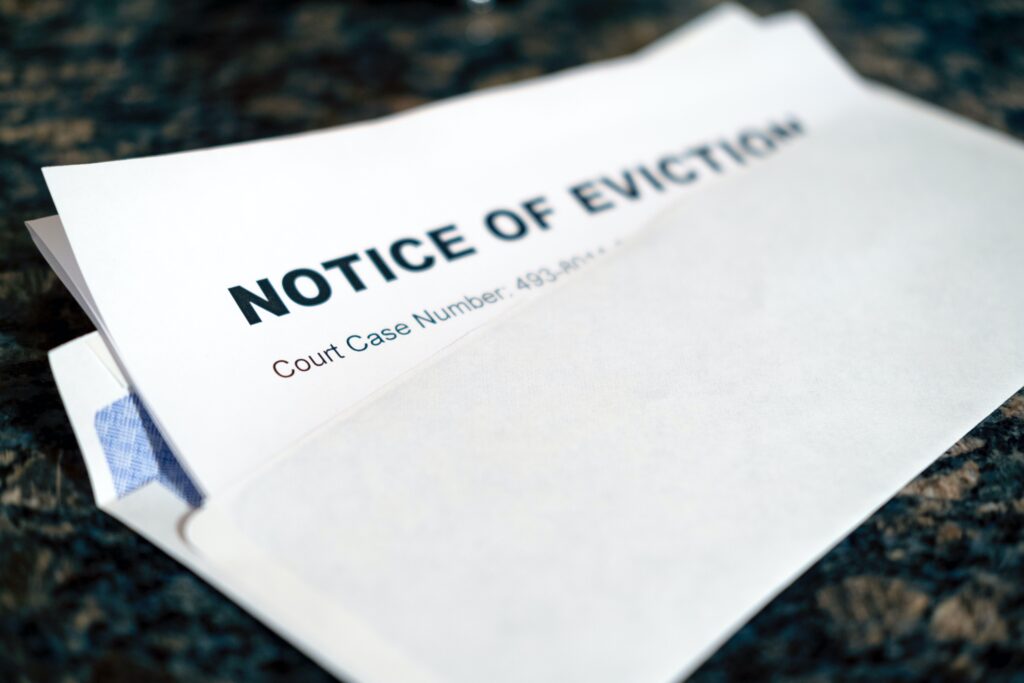It’s usually the buyer — but there’s more to the story than that.
In this post, we’ll walk you through exactly what conveyancing searches are, why they matter, and when sellers should consider footing the bill. You’ll also get practical tips to speed up your sale and even use searches as a competitive edge.
Conveyancing Searches: Purpose & Types
Before any contracts are signed, a buyer’s solicitor will order a batch of searches. These aren’t just legal box-ticking — they’re designed to uncover hidden headaches.
Think of it like a professional background check… but for your house.
Here’s what gets looked at:
Local Authority Search (LLC1 & CON29)
Reveals if your property is:
- In a conservation area
- A listed building
- Subject to planning enforcement or nearby road schemes
Environmental Search
Checks for:
- Flood risk (coastal, river, surface water)
- Land contamination (former industrial or landfill use)
- Subsidence or radon gas presence
Water & Drainage Search
Answers key questions like:
- Is the property connected to mains water?
- Are you building over a public sewer (which might need permission)?
Chancel Repair Liability
Yes, this still exists. In rare cases, properties near certain churches are liable for repair costs. These days, indemnity insurance is often the smart way to cover this off.
Mining and Ground Stability Searches
These are essential if the property is in:
- Yorkshire
- South Wales
- The Midlands
They help uncover:
- Historic mine shafts
- Old extraction zones
- Ground stability risks
Land Registry Docs
Land Registry documents include the Title Register and Title Plan.
Together, they show who owns the property, whether there are any rights of way (called easements), and if there are any charges or restrictions registered against it.
Optional Extras
Depending on the location or property type, you might also need:
- HS2 proximity checks
- Japanese knotweed assessments
- Leasehold-specific info (e.g., service charges)
Why Does the Buyer Usually Pay?
It’s simple: searches benefit the buyer.
They help them:
- Avoid nasty surprises
- Satisfy mortgage lenders
- Decide whether to proceed with the deal
Timing-wise, the buyer’s solicitor orders searches shortly after the offer is accepted. They’ll usually ask for an upfront payment from their client — £250 to £400 is standard.
The money is non-refundable. If the sale collapses, that money’s gone.
Note:
If you’re a cash buyer, searches aren’t required — but skipping them is a gamble. Think: building over a sewer, or floodplain surprises.
Mortgage lenders, however, won’t budge without:
- Local authority search
- Drainage & water report
- Environmental check
When Sellers Should Pay (or At Least Contribute)
Even though it’s not the norm, some savvy sellers choose to cover search costs — and in the right circumstances, it’s a game-changer.
Here’s when it makes sense:
1. Seller Search Packs
You commission the searches before listing the property, and hand them over to serious buyers. This shows transparency and helps reduce delays.
Perfect for:
- Slow markets
- Competitive listings
- Buyers in a hurry i.e. auction buyers
2. Informal Home Information Packs
Although HIPs were scrapped in 2010, some sellers are reviving the idea by offering voluntary bundles with:
- Core searches
- EPC certificate
- TA6/TA10 property forms
This isn’t required, but can make you stand out.
3. Buyer-Seller Negotiation
There are times when offering to cover (or split) the cost of searches can help seal the deal, especially if:
- A previous deal fell through
- You’re on a tight deadline
- You’re handling a delicate sale
In these cases, stepping up to pay for searches can be the clincher.
4. Property Auctions
A different ball game entirely.
In auctions, it’s compulsory. The seller must provide a full legal pack, including all searches before the auction takes place.
Why? Because the buyer exchanges contracts the moment the hammer falls. There’s no time for due diligence afterward.
How Much Do Property Searches Cost (and Why It Depends on Where You Live)
If you’re buying or selling a property, it’s essential to understand how much conveyancing searches will set you back — and why prices differ so much.
Average Fees: Bundles vs Individual Searches
Across England and Wales, a standard search pack costs between £250–£400, covering the basics:
| Search Type | Typical Cost (GBP) |
| Local Authority | £50–£300+ |
| Environmental | £30–£60 |
| Water & Drainage | £20–£60 |
| Chancel Repair | £10–£30 |
| Land Registry Documents (ea.) | £3–£7 |
| Mining/Ground Stability | £25–£40 (if needed) |
| Specialist Reports | £20–£60 each |
Searches are often bundled at a discount by solicitors or online providers, making them more affordable when purchased together.
Regional Differences: Why Location Matters
Search costs vary dramatically depending on where you live:
- England & Wales: Most local councils set their own fees. Some charge under £100, while others (like Southwark) exceed £300 for a Local Authority Search alone.
- Scotland: Sellers must commission a Home Report, which includes a survey and Energy Performance Certificate (EPC). Basic search costs are typically bundled into conveyancing and seller fees.
- Northern Ireland: The system differs slightly — buyers usually pay for a Property Certificate, plus environmental and drainage searches. Pricing varies by district and can be slower due to manual systems.
Hidden Charges to Watch Out For
Search fees are just the start — the true cost can creep up due to:
- Admin mark-ups by solicitors (sometimes £50–£100 on top)
- Priority/expedited services, which can double the local authority fee
- VAT not included in some advertised quotes
- Indemnity insurance (if a search reveals an issue or if searches are skipped), typically £30–£300 extra
Always ask for a full quote that includes VAT, disbursements, and search admin fees.
Fast-Track Options
Need speed? Some councils offer expedited local authority searches, returning results in 24 to 72 hours — but for a premium.
Worth it when:
- You’re in a property chain
- Working with auction deadlines
- Trying to avoid losing a buyer
Summary
| Location | Who Pays | Approx Cost | Speed Notes |
| England & Wales | Buyer (typically) | £250–£400 bundled | LA search = slowest, varies by council |
| Scotland | Seller (required) | Varies (in Home Report) | Faster exchanges; less negotiable |
| Northern Ireland | Buyer | Similar to England/Wales | Title searches can be manual and slower |
The Role of Conveyancers and Why Timing Is Crucial
Once an offer is accepted, the buyer’s solicitor gets the ball rolling:
- Confirms funds from the buyer to order searches.
- Reviews the draft contract pack from the seller’s solicitor.
- Orders and reviews searches once the documents are in.
But here’s the bottleneck
- Water, drainage, and environmental searches come back within a few days.
- Local authority searches? They’re the wildcard — anywhere from 2 to 8+ weeks, depending on the council.
Until all results are in and reviewed, the buyer’s solicitor won’t advise proceeding to exchange.
What sellers can do:
- Provide all documents early — title deeds, planning certificates, guarantees.
- Complete property forms (TA6, TA10, TA7 for leasehold) promptly.
- Encourage the estate agent to chase solicitors if things stall.
Indemnity Insurance: A Fast-Track Workaround
If searches are delayed or an issue crops up, indemnity insurance can save the day.
These are one-off policies that cover financial loss from a specific risk, without fixing the problem directly. And they’re usually quick to arrange.
Two Common Types:
- No-Search Indemnity
Used when speed is critical (e.g. short chain, auction deadlines). Covers buyers if something later emerges that would’ve been revealed in the searches. - Issue-Specific Policies
If, say, there’s no building control sign-off for an old loft conversion — the seller might pay for a policy to keep the sale alive.
Costs?
Usually £30–£300, depending on the coverage needed and property value.
But beware:
- Most lenders don’t accept indemnity cover instead of searches.
- Once a problem is formally raised with a local authority, the policy becomes void.
Pro Tips: Seller Strategies That Actually Speed Up the Sale
Want to make your home irresistible to buyers — and avoid delays?
Here’s what to do:
1. Order Searches Early
Get them done before you go live on Rightmove.
If the first buyer walks, the searches might still be usable by the next (typically valid for 3–6 months).
2. Use a Seller Search Pack
You can buy these from:
- Your solicitor
- Specialist third-party providers (some are digital-only and bundle everything)
3. Offer to Pay for the Buyer’s Searches
Especially smart if:
- You’re in a chain and want things to move fast.
- Your property’s had previous fall-throughs.
- You’re in a buyer’s market.
4. Provide Indemnity Insurance
Already know there’s a minor issue?
Pre-empt it with insurance. Saves time and stress later.
5. Have Your Paperwork Ready
This includes:
- Energy Performance Certificate (EPC)
- Building regs approvals
- FENSA certificates (for windows)
- Boiler service records
- Guarantees/warranties
The more you prep now, the less chasing later.
Regional Differences: How the Rules Change Across the UK
When it comes to property searches, where you live makes a big difference.
Let’s break it down:
England & Wales
- Standard approach: Buyer pays for searches after the offer is accepted.
- Seller packs: Optional — but increasingly popular in slower markets.
- Exchange timing: Only happens after the buyer’s solicitor gets all the search results and gives the green light.
Pro tip: Sellers who supply searches upfront can knock weeks off the conveyancing timeline.
Scotland
It’s an entirely different system as sellers must provide a Home Report before marketing the property.
This includes:
- A survey (Single Survey)
- Energy Performance Certificate (EPC)
- Property Questionnaire
Searches: They’re the seller’s legal responsibility.
Binding offers: Offers become legally binding earlier, which speeds up the whole process — but leaves less room for negotiation later.
Bottom line: If you’re selling in Scotland, you’re paying for the searches — end of.
Northern Ireland
It follows a structure closer to England & Wales.
Buyers pay for:
- A Property Certificate from local authorities
- Environmental and drainage searches
- Title deeds via the Registry of Deeds (especially for older properties)
But be warned, as Northern Ireland has some quirks with title systems, the process can be a bit slower and more manual.
The Future of Property Searches: What’s Changing?
Conveyancing is notoriously slow, but tech is finally catching up.
Here’s what’s reshaping the landscape:
1. Digital Land Charges Register
- HM Land Registry is gradually migrating Local Land Charges (LLC) data into a centralised digital system.
- Already rolled out across dozens of councils.
- Result? Instant search results in participating areas.
No more waiting 6+ weeks for a paper-based search.
- AI Risk Reports
- Some legal firms now offer AI-powered analysis of search data.
- Instead of a 60-page PDF full of legal jargon, buyers get plain-English summaries and flagged risks.
Saves solicitors time. Helps buyers understand issues faster. Win-win.
- E-Conveyancing Platforms
- New platforms let buyers, sellers, agents, and solicitors track transactions in real time.
- Everyone sees what stage the sale’s at.
- Less email tennis. Fewer phone chases. Fewer “Has the other side replied yet?” headaches.
Think: the conveyancing version of order tracking from Amazon.
- Permanent Property Records
The big vision? A blockchain-style ledger that stores all searches, surveys, and certifications permanently.
This would mean:
- No need to repeat the same searches for each new sale
- Instant transparency
- Fewer admin delays
We’re not quite there yet — but the groundwork’s being laid.
What if a search uncovers a major issue?
There are three main routes:
- Indemnity insurance – For minor or known issues (like a missing planning certificate), sellers often pay for a one-off policy so the sale can proceed.
- Renegotiation – If a significant issue surfaces, like flood risk or structural problems, buyers may renegotiate the price or ask the seller to resolve it first.
- Pulling out – In worst-case scenarios, a buyer may walk away completely.
Tip: Good conveyancers will explain your options and help you navigate the next steps quickly.
How long does each search take?
It varies depending on the search type and the local authority involved.
| Search Type | Typical Timeline |
| Local Authority Search | 2 to 8+ weeks |
| Environmental Search | 2 to 5 working days |
| Water & Drainage Search | 2 to 5 working days |
| Chancel Repair Search | Instant to 2 days |
| Land Registry Documents | Instant (digital) |
| Mining/Ground Stability | 3 to 7 days (if needed) |
| Fast-track Services | 24 to 72 hours (premium) |
Delays usually come from the Local Authority Search, especially if the council is still using paper-based systems.
Are electronic searches as reliable as paper ones?
Yes — and in most cases, they’re even better.
Modern search providers deliver results electronically via regulated platforms. These are fully accepted by solicitors, lenders, and mortgage companies.
Some benefits of digital searches:
- Faster turnaround times
- Easier to share and review
- Integrated into e-conveyancing platforms
Plus, HM Land Registry is migrating Local Land Charges to a centralised digital system, making instant results a reality in many areas.
Thinking About Skipping the Hassle? Try Property Rescue
If all this sounds like a lot to juggle, you’ve got another option.
At Property Rescue, we buy your property fast, for cash — and we take care of the entire process:
- Conveyancing with trusted legal partners
- Search packs are sorted and paid for
- No chains and mortgage delays
- Completion in as little as 14 days
We’re direct cash buyers, which means we’ll buy the property directly from you for cash. So, you’ll benefit from:
- No waiting for survey results or mortgage approvals
- No collapse risk from flaky buyers
- No search fees for you to worry about
Selling Doesn’t Have to Be Stressful of Slow
Understanding how searches work — and who pays for them — is one of the best ways to avoid nasty surprises and delays.
Whether you’re gearing up to sell or already have a buyer on the hook, being search-smart can shave weeks off your timeline.
Want to skip the long process entirely?
Sell directly to us. Get a free, no-obligation valuation from Property Rescue today.








